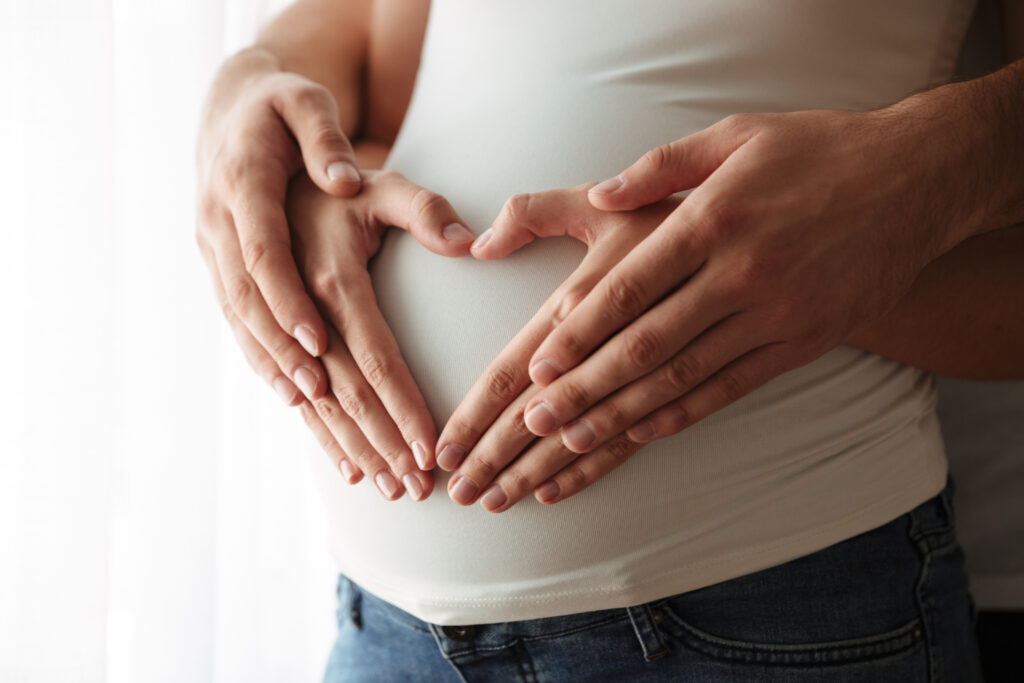High risk pregnancy can sound alarming when first mentioned by a doctor, but it doesn’t always mean something will go wrong. Instead, it means you or your baby may need closer monitoring and extra support to ensure a safe pregnancy and delivery. With today’s advanced medical care, many women with high risk pregnancies go on to have smooth deliveries and healthy babies.
Pregnancy is often seen as a joyful journey, but for some, it comes with unique challenges that call for special attention. Understanding what makes a pregnancy high risk, what symptoms to watch for, and how care is managed can help expecting mothers feel more informed and supported.
What Is a High Risk Pregnancy?
A high risk pregnancy simply means there are factors that could affect the health of the mother, the baby, or both. This doesn’t guarantee problems—it just means extra care is needed.
Doctors classify a pregnancy as high risk based on medical history, maternal age, lifestyle, or complications that arise during pregnancy.
Why Some Pregnancies Are Considered High Risk
Every woman’s pregnancy is unique, but certain factors can increase risks:
Pre-existing health conditions like diabetes, high blood pressure, thyroid disorders, or autoimmune conditions.
Complications during pregnancy such as gestational diabetes, preeclampsia, or issues with the placenta.
Age-related risks for women under 18 or over 35.
Multiple pregnancies (twins, triplets, or more), which naturally place more strain on the body.
It’s important to remember that having a high risk pregnancy is not your fault—it’s your body’s way of signaling it needs extra support.
What It Feels Like to Navigate a High-Risk Pregnancy
For many women, hearing that their pregnancy is “high-risk” can feel overwhelming. Imagine looking forward to every ultrasound with joy, but suddenly realizing those scans now come with more anxiety than excitement. Instead of just counting tiny fingers and toes, you may find yourself waiting for reassurance that everything is okay.
Mothers often describe a rollercoaster of emotions—relief when tests are normal, and worry when new procedures are recommended. This emotional strain is just as real as the physical challenges. That’s why compassionate care, open communication with doctors, and a supportive environment at home are so essential.
Symptoms That Should Never Be Ignored
While every pregnancy has its ups and downs, some symptoms during a high-risk pregnancy need immediate medical attention. Vaginal bleeding, severe abdominal pain, sudden swelling, headaches that don’t go away, blurred vision, or noticing reduced baby movements are all signals that something might not be right. These aren’t just “normal pregnancy discomforts”—they’re your body’s way of asking for help.
How High Risk Pregnancy Is Managed
The management of a high risk pregnancy is personalized based on your health and baby’s needs. Doctors may recommend:
Frequent check-ups & ultrasounds to monitor growth and development.
Specialist referrals to maternal-fetal medicine experts.
Lifestyle modifications such as diet changes for gestational diabetes.
Medication & rest for conditions like high blood pressure.
Early delivery planning if it ensures better safety for mother and baby.
The Emotional Journey of a High Risk Pregnancy
A high risk pregnancy affects not only physical health but also emotional well-being. Many mothers describe it as a rollercoaster of emotions—relief after good reports and anxiety during waiting periods.
Counseling and therapy can ease stress.
Support groups help mothers connect with others facing similar challenges.
Open communication with loved ones provides reassurance.
Emotional care is just as vital as medical care in managing a high risk pregnancy.
Conclusion: There Is Always Hope
A high-risk pregnancy may bring more hospital visits, extra tests, and added worries, but it also comes with hope—hope that with careful monitoring and modern medical care, you and your baby can stay safe. Every check-up, every ultrasound, every conversation with your doctor is a step closer to holding your baby in your arms.
If you or someone you love is experiencing a high-risk pregnancy, don’t delay seeking expert care. The earlier you act, the better the outcomes for both mother and child.
High Risk Pregnancy Needs Expert Hands—We’re Here for You.
At Angel Agastya Multi Speciality Hospital, Delhi, our team of experienced gynecologists and maternal-fetal medicine experts specialize in supporting mothers through high-risk pregnancies. With compassion, advanced technology, and personalized care, we’re here to guide you every step of the way.
📞 Call for appointments: +91-9667294291
📍 Visit us at: Angel Agastya Multi Speciality Hospital,
Pillar No 39, RZ-14 Raj Nagar, 40, Palam, New Delhi, Delhi 110045

